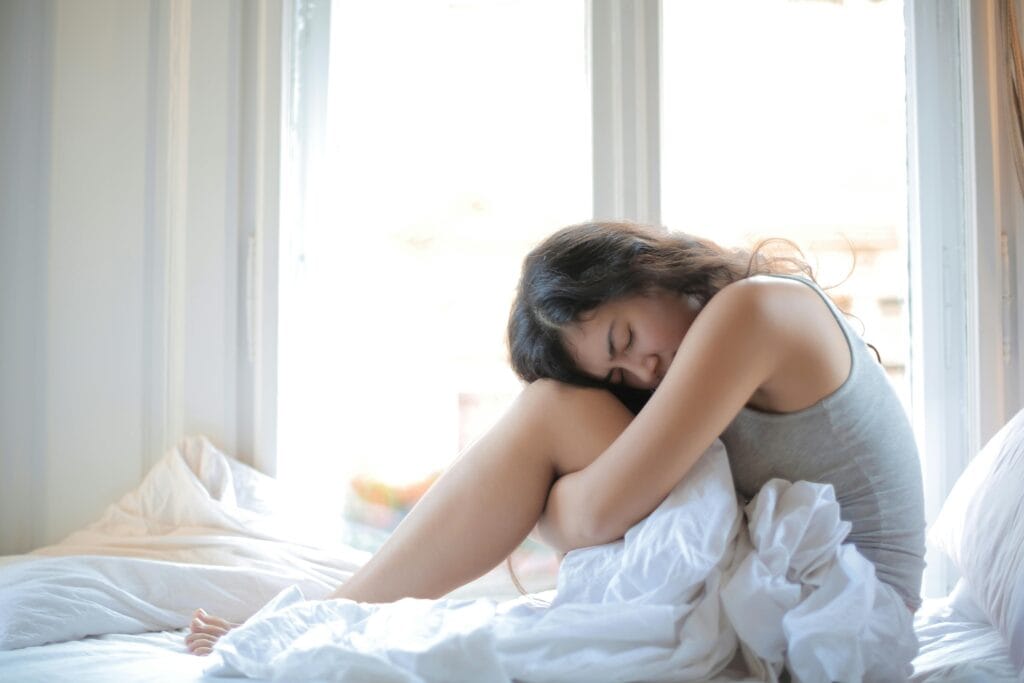Introduction
Discover the causes of insomnia during menopause and explore natural solutions to regain restful sleep. Practical advice and effective methods.
Menopause is a natural stage in women’s lives, marked by a gradual decline in sex hormones, particularly estrogen. This transition can cause various symptoms, including insomnia, which significantly impacts quality of life. Understanding its causes and adopting effective natural solutions is essential to regain restful sleep and maintain your well-being.
What causes insomnia during menopause?
Several factors explain insomnia during this period:
- Hormonal changes: Decreased estrogen disrupts the regulation of the sleep-wake cycle, causing nighttime awakenings and difficulty falling asleep.
- Hot flashes and night sweats: These common symptoms often interrupt sleep.
- Stress and anxiety: Menopause can increase sensitivity to stress, contributing to insomnia.
- Psychological changes: Mood swings, mild depression, or irritability can also disrupt sleep.
- Other factors: Joint pain, nighttime urination, or unfavorable lifestyle habits.
Natural solutions to improve your sleep during menopause
Here are some recommended natural methods to combat insomnia:
Phytotherapy 🌿
- Lemon balm, valerian, passionflower : Plants known for their calming and sedative properties, they help reduce anxiety and facilitate sleep.
- Black cohosh : Used to alleviate menopausal symptoms, including sleep disturbances.
Check out our Black cohosh supplement here: Meno-Cool
- Hops Extracts : Promote muscle relaxation and deeper sleep.
Natural Supplements 💊
- Magnesium : Essential mineral for muscle and nerve relaxation.
- Melatonin : Natural sleep hormone, ideal for regulating the sleep-wake cycle.
- Black cohosh : Used to alleviate menopausal symptoms, including sleep disturbances.
Check out our Black cohosh supplement here: Meno-Cool
Aromatherapy 🌸
- Lavender, chamomile or sweet orange essential oils: Diffused in the room or applied (diluted) to pulse points, they promote relaxation and sleep.
Relaxation Techniques 🧘♀️
- Gentle yoga, meditation, deep breathing or sophrology: These practices help reduce stress and prepare the body for sleep.
Check out our guided meditation for insomnia
Practical tips for quality sleep
To improve your sleep, adopt these good habits:
- Maintain a regular rhythm: Go to bed and get up at fixed times, even on weekends.
- Create a supportive environment: Ensure your bedroom is quiet, between 18 and 20°C, and in complete darkness.
- Limit stimulation before bedtime: Avoid screens, caffeine, alcohol, and heavy meals in the evening.
- Engage in moderate physical activity: Walking or swimming are ideal, but not too close to bedtime.
- Establish a calming ritual: Read a book, take a warm bath, sip a relaxing herbal tea (with lime blossom or verbena, for example).
- Manage hot flashes: Wear light clothing, use a fan, and practice breathing techniques during nighttime attacks.
Check out our Black cohosh supplement – ideal for hot flashes and night sweats
Meno-Cool
Conclusion
Insomnia during menopause is a common problem, primarily linked to hormonal fluctuations, but also to other physical and psychological factors. Before considering drug treatment, it is possible to adopt simple and effective natural solutions, combined with good lifestyle habits, to regain restful sleep. But don’t hesitate to consult a medical or natural healthcare professional or for personalized support.
Here are some links to sources or scientific studies to supplement the information shared in this article.
- The Benefits of Herbal Medicine for Menopause
- Tips for Managing Hot Flashes
- Relaxation Exercises for Better Sleep

